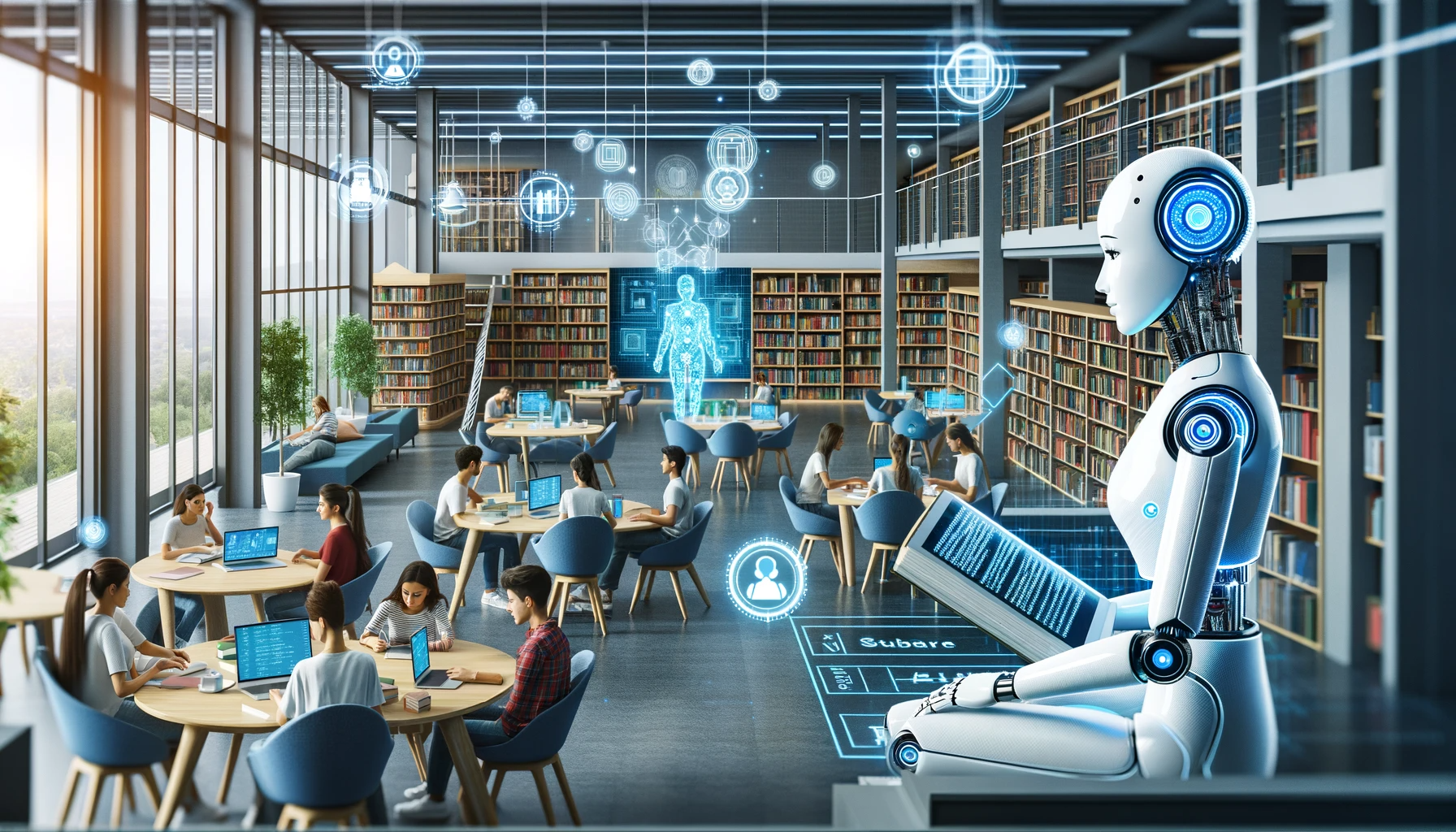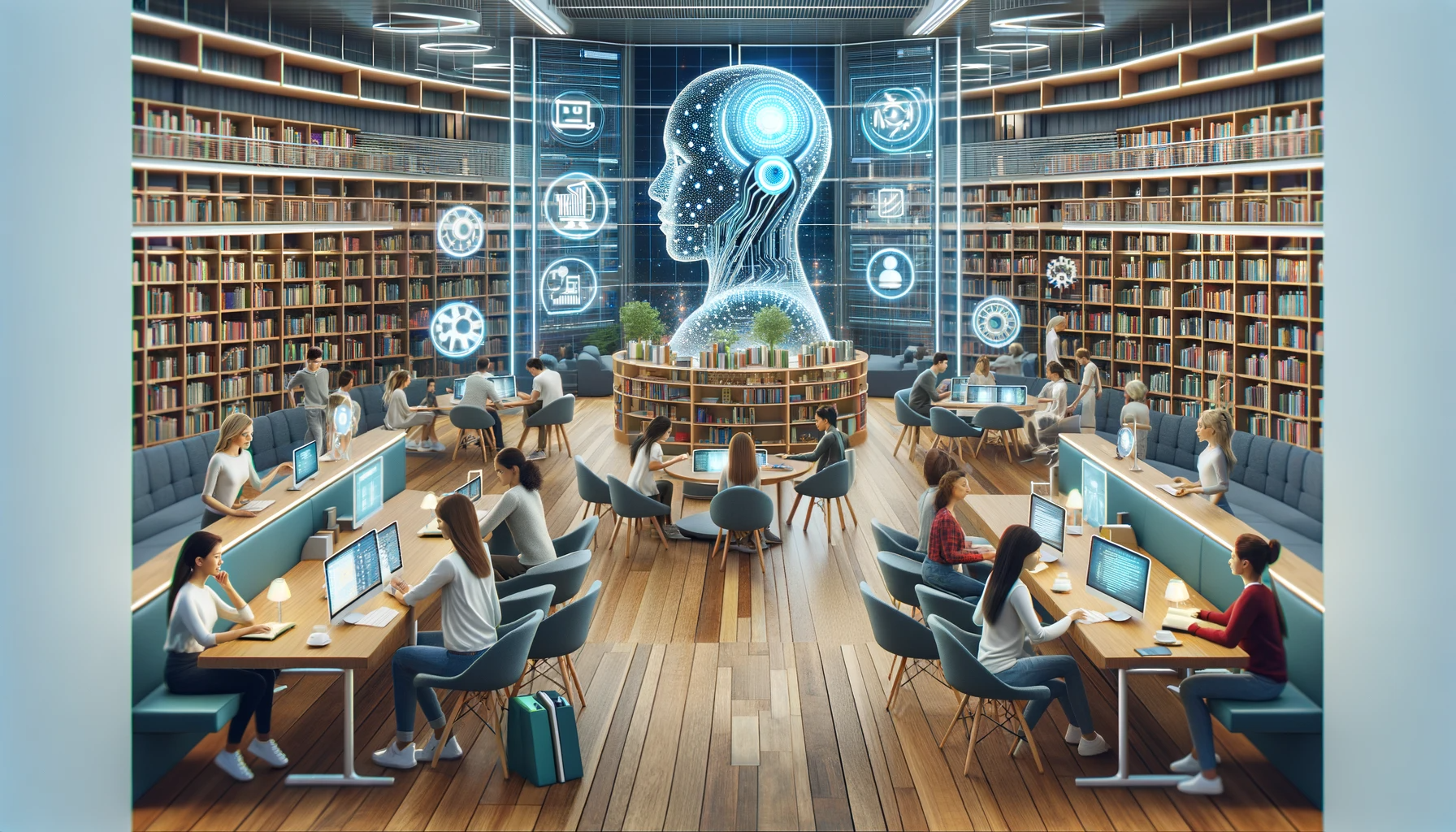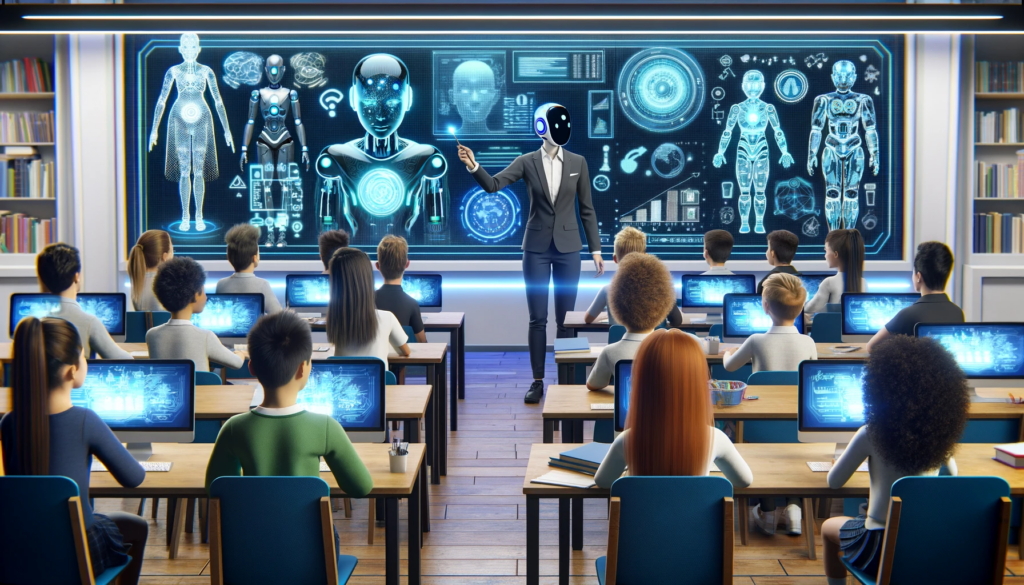In an era characterized by rapid technological advancement, artificial intelligence (AI) has emerged as a transformative force with the potential to reshape various facets of our lives. One of the domains where AI’s impact is increasingly felt is education, giving rise to a fundamental question: Will AI eventually replace human teachers in the classroom? This inquiry underscores the complex interplay between technological innovation and the timeless role of educators. As we navigate this evolving landscape, it becomes evident that while AI offers promising innovations in education, it also presents multifaceted challenges and dilemmas that require careful consideration.

The Current State of AI in Education
The current landscape of education is experiencing a paradigm shift, with AI becoming an integral part of the learning journey. AI-driven tools and technologies are being harnessed to enhance and personalize the educational experience. Personalized learning platforms, powered by AI algorithms, adapt to individual student needs, offering tailored instruction and feedback. Chatbots provide instant assistance, aiding students in clearing doubts and navigating coursework. These innovations offer scalability, adaptability, and the potential to deliver high-quality education to learners around the world.
One of AI’s compelling strengths is its ability to analyze vast datasets and offer insights. This data-driven approach empowers educators with actionable information about student performance and learning patterns. AI can identify areas where students may require additional support, allowing teachers to provide timely interventions. Additionally, AI-powered educational tools can cater to diverse learning styles, ensuring that no student is left behind.
The Role of Teachers in Education
Human teachers have long been revered for their indispensable role in education. Beyond their function as conveyors of knowledge, teachers serve as mentors, motivators, and emotional support systems for their students. They possess the unique ability to inspire and guide students on their educational journey, fostering qualities such as critical thinking, creativity, and the development of essential life skills.
The classroom environment, enriched by human interaction, enables students to engage in meaningful dialogues, ask questions, and explore subjects in depth. Teachers encourage curiosity, instill a love for learning, and provide the emotional support necessary for students to navigate challenges and setbacks. They offer not only academic guidance but also valuable life lessons and ethical education.
The Potential of AI in Education
AI holds significant promise in revolutionizing education by addressing some of its longstanding challenges. One of its most compelling strengths is its capacity for personalization. AI-driven algorithms can analyze students’ strengths and weaknesses, adapt curriculum and resources accordingly, and create individualized learning pathways. This individualized approach allows students to learn at their own pace, maximizing their potential. Additionally, AI can assist teachers in tasks like assessment, grading, and administrative work, freeing up valuable time for more personalized interaction with students.
Moreover, AI has the potential to enhance accessibility in education. It can provide support for students with disabilities, offering tailored resources and accommodations to facilitate learning. Language barriers can be overcome through real-time translation and language learning applications. In this way, AI contributes to creating a more inclusive educational environment.
Challenges and Concerns
While AI in education presents exciting opportunities, it also raises pertinent concerns that must be addressed. Privacy is a paramount issue, as AI systems collect and analyze vast amounts of student data. Ensuring robust data security measures and ethical use of AI in educational settings is of utmost importance. Additionally, AI algorithms can be susceptible to bias, which can perpetuate inequalities and affect educational outcomes. It is imperative to rigorously address bias in AI to ensure fairness and equity in education.
Furthermore, there are concerns about job displacement among educators due to the automation of certain teaching tasks. While AI can assist with administrative work and personalized instruction, the role of human teachers in mentorship, emotional support, and fostering creativity remains indispensable. It is essential to recognize and safeguard the role of educators in the changing landscape of education.
Another challenge is the potential digital divide, where access to AI-powered education may be unevenly distributed among students. Ensuring equitable access to technology and AI-driven educational resources is critical to prevent further disparities in education.
The Human Touch in Education
Despite the undeniable potential of AI, it cannot replace the unique qualities that human teachers bring to education. The emotional intelligence, empathy, and creativity of teachers are irreplaceable. Human teachers have the ability to connect with students on a personal level, understanding their individual needs, motivations, and challenges.
Teachers instill a love for learning that extends beyond the confines of a syllabus. They inspire intellectual curiosity and critical thinking, encouraging students to question, explore, and engage deeply with subject matter. Moreover, teachers play a pivotal role in character development, nurturing qualities such as empathy, teamwork, and ethical behavior.
The classroom environment, enriched by the presence of a caring and dedicated teacher, fosters meaningful interactions, discussions, and debates. These interactions not only enhance academic learning but also contribute to the holistic development of students.

The Future of Education
The future of education lies in finding a harmonious balance between AI and human teachers. Rather than viewing AI as a replacement, it should be seen as a valuable tool that complements and augments the abilities of educators. In such a scenario, AI can handle administrative tasks, provide personalized learning experiences, and offer data-driven insights, while human teachers focus on mentoring, emotional support, and fostering creativity and critical thinking.
In this envisioned future, AI becomes a powerful ally in delivering high-quality education that is personalized, inclusive, and inspiring. Educators collaborate with AI to create dynamic and engaging learning experiences, leveraging technology to adapt to the diverse needs of students.
Ultimately, the fusion of AI and human teaching expertise has the potential to redefine education, making it more accessible, effective, and student-centric. Achieving this delicate balance will be pivotal in shaping the educational landscape of tomorrow, where the human touch and technological innovation work hand in hand to empower learners and educators alik
